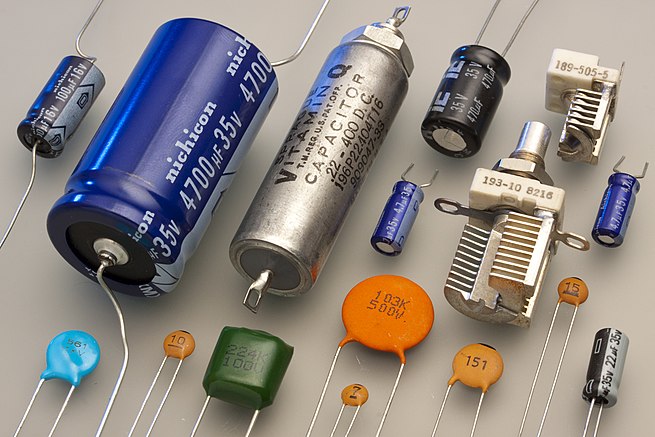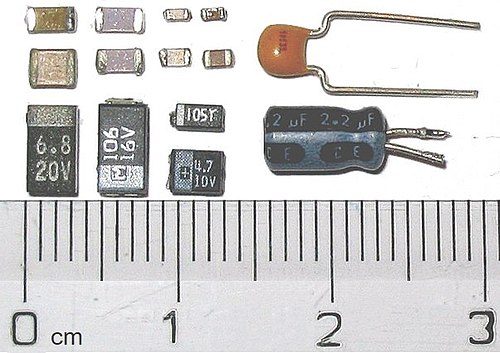Dielectricnoun
(metamaterial) An electrically insulating or nonconducting material considered for its electric susceptibility, i.e. its property of polarization when exposed to an external electric field.
Dielectricadjective
(electrically) insulating
Dielectricnoun
Any substance or medium that transmits the electric force by a process different from conduction, as in the phenomena of induction; a nonconductor, separating a body electrified by induction, from the electrifying body.
Dielectricnoun
a material such as glass or porcelain with negligible electrical or thermal conductivity
Dielectric
In electromagnetism, a dielectric (or dielectric material) is an electrical insulator that can be polarized by an applied electric field. When a dielectric material is placed in an electric field, electric charges do not flow through the material as they do in an electrical conductor, but instead only slightly shift from their average equilibrium positions, causing dielectric polarization.
Capacitornoun
(electronics) An electronic component capable of storing electrical energy in an electric field; especially one consisting of two conductors separated by a dielectric.
Capacitornoun
a device used in electronic circuits to hold electrical charge, consisting of two conducting plates separated by a nonconducting (dielectric) medium; it is characterized by its capacitance.
Capacitornoun
an electrical device characterized by its capacity to store an electric charge
Capacitornoun
a device used to store an electric charge, consisting of one or more pairs of conductors separated by an insulator.
Capacitor
A capacitor is a device that stores electrical energy in an electric field. It is a passive electronic component with two terminals.


















